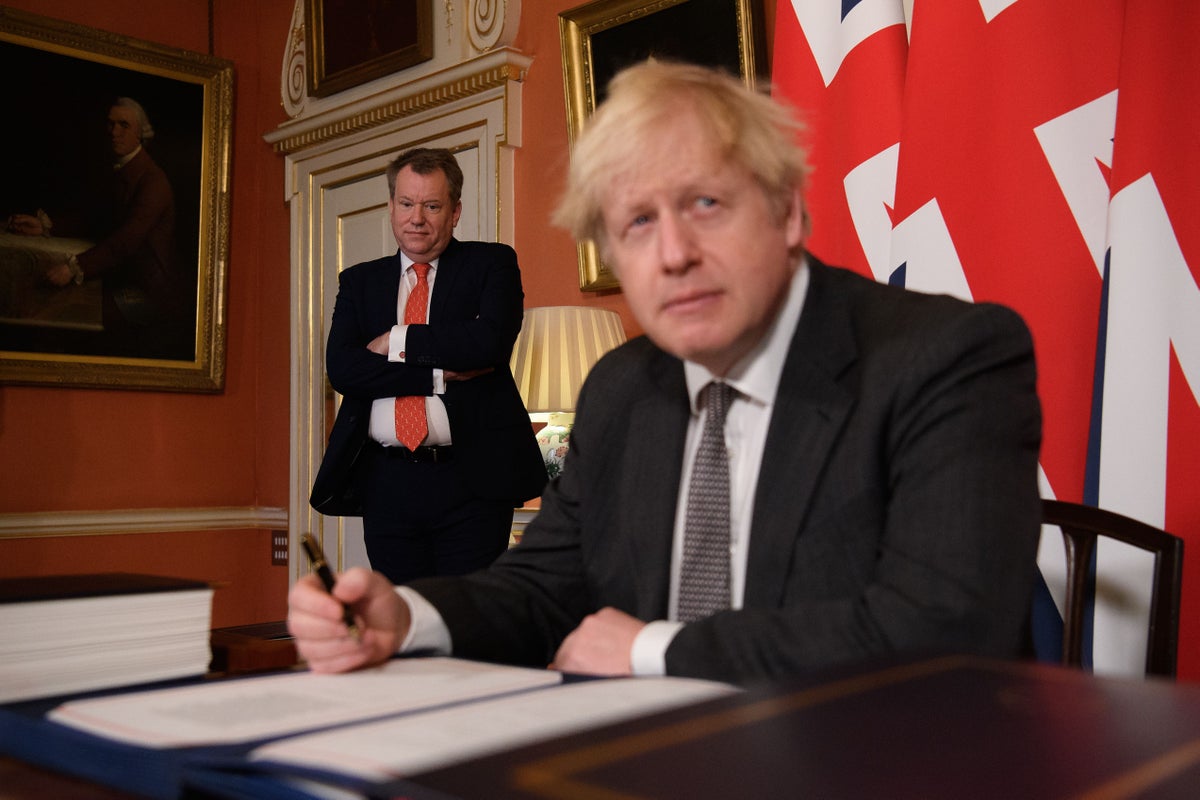
Britain’s relationship with the EU is recovering from a “very low point” of “no trust” during the Boris Johnson era, according to Germany’s ambassador to the UK.
Miguel Berger praised Prime Minister Rishi Sunak for having developed a “relationship of trust” with European Commission president Ursula von der Leyen, adding: “This is something we can build on.”
Mr Berger said the EU now has “full confidence” that the UK will implement what has been agreed over Brexit matters in contrast to the experiences with Mr Johnson when prime minister.
MPs will be asked to approve regulations to introduce the Stormont brake section of the Windsor Framework on Wednesday.
Downing Street believes the measure – which potentially gives the UK a veto over the imposition of new EU rules in Northern Ireland – was the “most significant part” of the agreement.
It represents the first Commons test for Mr Sunak’s deal with the EU and he could face a Tory backbench rebellion.
The Windsor Framework as a whole seeks to reduce the volume of Brexit red tape on the movement of GB goods bound for Northern Ireland that was created by the Northern Ireland Protocol.
Mr Berger told Sky News’s Sophy Ridge On Sunday programme: “I think it’s a very good compromise that has been worked out quietly over four months between the European Commission and the British Government.
“It preserves the Good Friday Agreement, it preserves east-west trade, it means that the border between the Republic of Ireland and Northern Ireland can stay open, so I think it achieves all the main objectives.
“What I hear very often from business people in Northern Ireland is what they need is predictability and stability and I think the Windsor Framework can achieve that.”
Mr Berger added: “We understand the sensitivities of the DUP and other unionists but at the same time I think we need a compromise which allows us to have the necessary confidence in the agreement, and I think this has been achieved.”
“We are very confident not only that there will be an overwhelming majority in the House of Commons but also this is an agreement where we can build on to strengthen the relationship between the United Kingdom and the European Union.”
I think we can look to a brighter future in the relationship.— Miguel Berger
Mr Berger added: “We have full confidence that the British Government is really going to implement what was agreed and, as we know, that was not the case with Boris Johnson.”
Asked to describe the relationship with former prime minister Mr Johnson, he said: “I would say that the relationship was really at a very low point, there was no trust that things agreed will be implemented and this is absolutely different now.
“I think we can look to a brighter future in the relationship.”
The so-called Stormont brake mechanism enables a minority of Stormont MLAs to formally flag concerns about the imposition of new EU laws in Northern Ireland.
The process could ultimately lead to the UK Government vetoing their introduction.
Details of how the brake will operate are due to be outlined in the secondary legislation, which the Government has said would be published on Monday.
The DUP, which collapsed powersharing in Northern Ireland in protest at the protocol, has said the Windsor Framework does not deal with some “fundamental problems” created by existing arrangements.
Cabinet Office minister Oliver Dowden told Sky News: “I’m confident the vote will succeed and pass, and I hope we will do so with the support of the DUP but ultimately that is for them.”
Labour will vote in favour of the regulations on Wednesday and shadow communities secretary Lisa Nandy told the same programme: “I think it’s a step forward and we will support a step forward.
“Rishi Sunak is prepared to go and start cleaning up some of his own mess, we’re certainly not going to criticise him for that and there’s no question that this is something that is now urgent, it’s incredibly important and trying to remove some of that friction, some of those barriers on the island of Ireland has long been our priority.”







